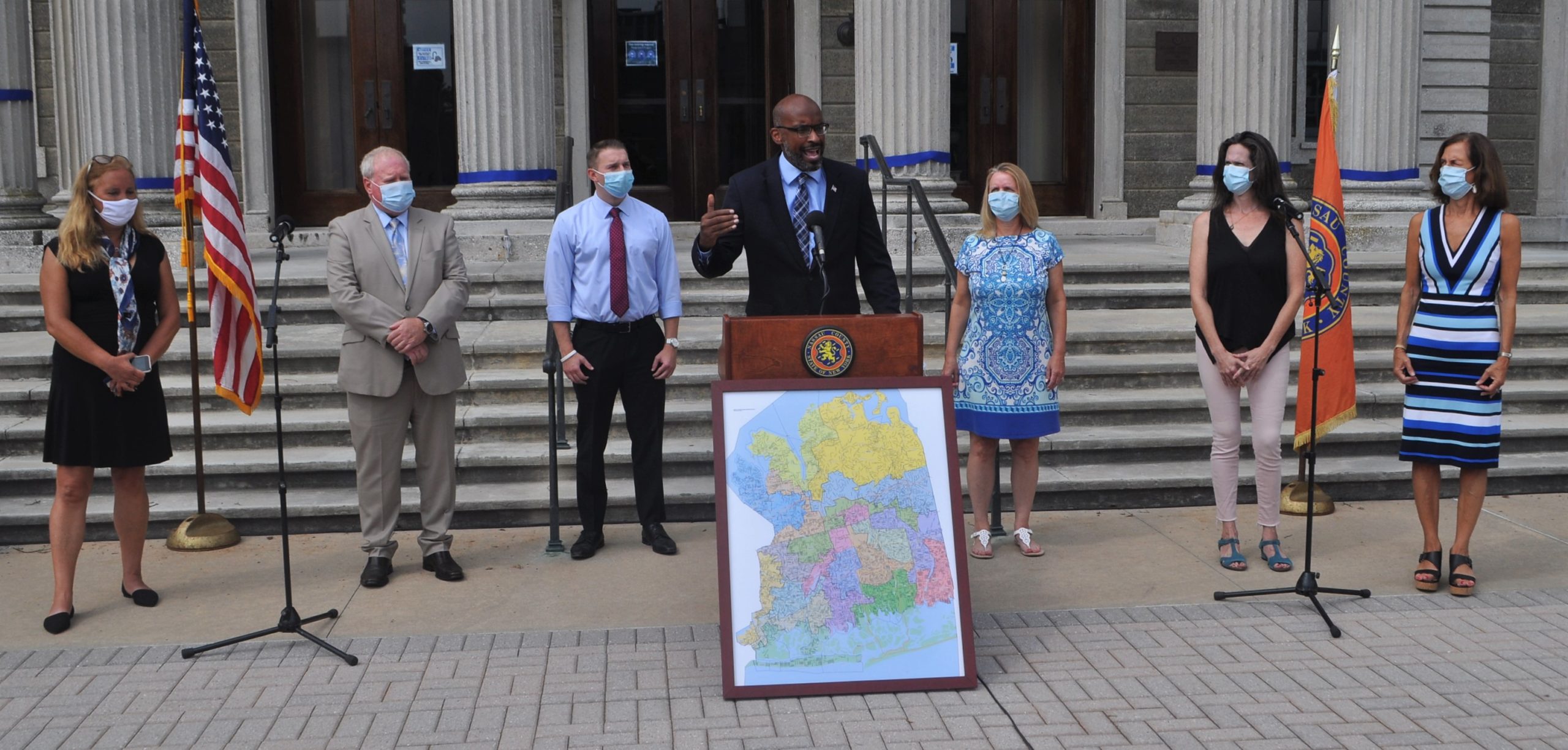Nassau County Legislature Minority Leader Kevan Abrahams (D-Freeport) and fellow members of the minority caucus proposed changes to legislative districts throughout the county by creating a redistricting commission.
The proposed nine-member commission would be tasked with reordering the 19 districts of the county Legislature to make them geographically compact and more contiguous. According to the proposal, three members of the commission would be picked by the leader of the Legislature’s majority, three would be chosen by the minority leader and three would be agreed upon by both sides.
The committee, Abrahams said, would preserve the boundaries of cities, towns and incorporated villages.
“The creation of an independent redistricting commission will liberate Nassau County voters from decades of election districts which exist primarily to advance the political interests of entrenched machine politicians over the interests of the people,” Abrahams said.
As of now, redistricting is delegated to an 11-member board made up of five voting members from each party, with the last member being a nonvoting chairperson picked by the county executive.
Abrahams said the current map ensured that around 95 percent of incumbent politicians have been re-elected since 1995.
If the Legislature passes the proposed measure, the new map would go into effect for the 2023 election cycle and would be redrawn every 10 years afterward. The proposal would also require the commission to solicit public input on the map it ultimately creates. A draft of the map would have to be released no later than September 2022, and the finalized map would need to be certified at least a year before the 2023 general election.
The proposal would also have rules for appointing a “special master” to conduct the redistricting if the commission does not meet its deadline or if the maps are rejected by a court. The measure would not allow for partisan politics to play a part in redistricting by requiring a mandatory public referendum to approve any operational changes.
According to a news release from the Legislature’s minority caucus, new district lines would promote equal representation and protect the “sanctity of residents’ voting right, irrespective of race, ethnicity, religion, or socioeconomic status.”
Last Wednesday, Abrahams urged Presiding Officer Richard Nicolello (R-New Hyde Park) to show his support in creating a nine-member independent redistricting commission. The announcement comes amid the 2020 census.
“It is difficult to understand why in the midst of the COVID-19 pandemic, fiscal crisis, and with thousands of residents still without power after the recent storm, the minority chooses to focus their energy on changing the county’s redistricting process,” Republican spokesperson Christopher Boyle said in a statement.
Republicans currently hold an 11-8 majority in the county Legislature.
“We need a system in place where that changes, where we’re constantly evolving and we’re constantly bringing in new people into the process, and the elections are fair and people are accountable,” Abrahams said. “And if you don’t do the job of your legislative district then you couldn’t rely on this [current] map to get you into office.”
Jeffrey Wice, a New York Law School adjunct professor, supported the measure to prevent gerrymandering throughout the county.
“Independent redistricting commissions help develop plans outside the Legislature and can help prevent the kind of gerrymandering that the public rejects,” Wice said. “The criteria in this legislation will strengthen Nassau’s ability to enact legislative districts that better reflect communities.”
“As Nassau County and the nation continue to engage with the most urgent civil rights debate of our generation, we are reminded that the most fundamental of all civil rights is the sanctity of the right to vote,” Abrahams said. “This is a bill that will restore full voting rights in Nassau and ensure that all communities will have a meaningful voice in elections. This means that their voices will also be heard by government officials who make the crucial decisions that affect their lives.”



